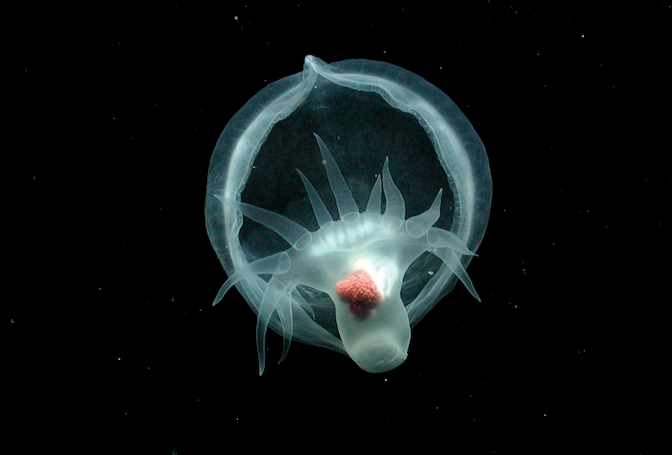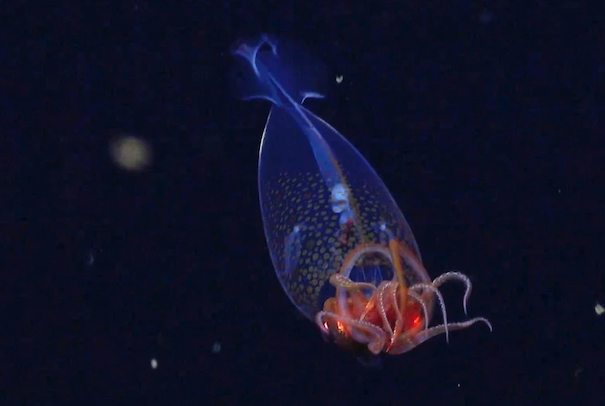Thanks for helping us reach 1M Subscribers on YouTube! ͏ ͏ ͏ ͏ ͏ ͏ ͏ ͏ ͏ ͏ ͏ ͏ ͏ ͏ ͏ ͏ ͏ ͏ ͏ ͏ ͏ ͏ ͏ ͏ ͏ ͏ ͏ ͏ ͏ ͏ ͏ ͏ ͏ ͏ ͏ ͏ ͏ ͏ ͏ ͏ ͏ ͏ ͏ ͏ ͏ ͏ ͏ ͏ ͏ ͏ ͏ ͏ ͏ ͏ ͏ ͏ ͏ ͏ ͏ ͏ ͏ ͏ ͏ ͏ ͏ ͏ ͏ ͏ ͏ ͏ ͏ ͏ ͏ ͏ ͏ ͏ ͏ ͏ ͏ ͏ ͏ ͏ ͏ ͏ ͏ ͏ ͏ ͏ ͏ ͏ ͏ ͏ ͏ ͏ ͏ ͏ ͏ ͏ ͏ ͏ ͏ ͏ ͏ ͏ ͏ ͏ ͏ ͏ ͏ ͏ ͏ ͏ ͏ ͏ ͏ ͏ ͏ ͏ ͏ ͏ ͏ ͏ ͏ ͏ ͏ ͏ ͏ ͏ ͏ ͏ ͏ ͏ ͏ ͏ ͏ ͏ ͏ ͏ ͏ ͏ ͏ ͏ ͏ ͏ ͏ ͏ ͏ ͏ ͏ ͏ ͏ ͏ ͏ ͏ ͏ ͏ ͏ ͏ ͏ ͏ ͏ ͏ ͏ ͏ ͏ ͏ ͏ ͏ ͏ ͏ ͏ ͏ ͏ ͏ ͏ ͏ ͏ ͏ ͏ ͏ ͏ ͏ ͏ ͏ ͏ ͏ ͏ ͏ ͏ ͏ ͏ ͏ ͏ ͏ ͏ ͏ ͏ ͏ ͏ ͏ ͏ ͏ ͏ ͏ ͏ ͏ ͏ ͏ ͏ ͏ ͏ ͏ ͏ ͏ ͏ ͏ ͏ ͏ ͏ ͏ ͏ ͏ ͏ ͏ ͏ ͏ ͏ ͏ ͏ ͏ ͏ ͏ ͏ ͏ ͏ ͏ ͏ ͏ ͏ ͏ ͏ ͏ ͏ ͏ ͏ ͏ ͏ ͏ ͏ ͏ ͏ ͏ ͏ ͏ ͏ ͏ ͏ ͏ ͏ ͏ ͏ ͏ ͏ ͏ ͏ ͏ ͏ ͏ ͏ ͏ ͏ ͏ ͏ ͏ ͏ ͏ ͏ ͏ ͏ ͏ ͏ ͏ ͏ ͏ ͏ ͏ ͏ ͏ ͏ ͏ ͏ ͏ ͏ ͏ ͏ ͏ ͏ ͏ ͏ ͏ ͏ ͏ ͏ ͏ ͏ ͏ ͏ ͏ ͏ ͏ ͏ ͏ ͏ ͏ ͏ ͏ ͏ ͏ ͏ ͏

|
| How to 'See' the 4th Dimension with Topology |
|
| Mathematician Maggie Miller explores the strange and fascinating world of 4D topology — the study of shapes, or manifolds, that resemble flat Euclidean space when viewed up close. Four-dimensional manifolds behave in unexpectedly complex ways, pushing mathematicians to develop advanced techniques to understand them. |
|
| |
|
|
|
|
|
|
|
|
|
| | Amateurs Solve a Famous Computer Science Problem On Discord |
|
| A team of amateurs recently came together in an online collaboration called the Busy Beaver Challenge to pin down the value of BB(5), the fifth "busy beaver" number — a notoriously difficult problem in theoretical computer science. The landmark result explores the limits of computation and the boundaries of what is knowable in mathematics. |
|
| |
|
|
|
|
|
|
|
|
|
| | A Once-in-a-Century Proof: The Kakeya Conjecture |
|
| A simple question about a spinning needle has haunted mathematicians for more than a century. It led to the Kakeya conjecture, a cornerstone of modern analysis connecting geometry, fractals, and the behavior of waves. Now, mathematicians Hong Wang and Joshua Zahl have cracked the 3D case — a once-in-a-generation breakthrough that could reshape how we understand the Fourier transform. |
|
| |
|
|
|
|
|
|
|
|
|
| | One Step Closer to a 'Grand Unified Theory of Math': Geometric Langlands |
|
| Mathematicians recently proved a central component of the Langlands program, an ambitious effort to develop a "grand unified theory" of mathematics. The monumental proof of the geometric Langlands conjecture totaled more than 800 pages and marked the culmination of 30 years of work by nine mathematicians. |
|
| |
|
|
|
|
|
|
|
|
|
| | Mirror Molecules: The Symmetry Rule Life Never Breaks |
|
| Most organic molecules have a mirror-image twin. This concept is known as chirality. Yet life only uses one chiral molecule, not the other. The reason for this asymmetry is one of the greatest mysteries of biology. From Louis Pasteur to stereochemistry to the concept of mirror life, here is the science of chirality. |
|
| |
|
|
|
|
|
|
|
|
|
| | | |
|
|
|
| |
|


















